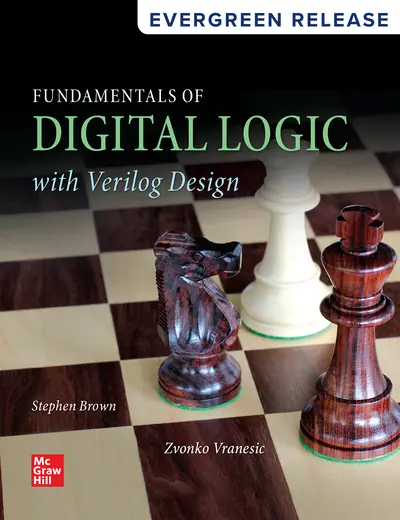My Account Details

ISBN10: 1259852709 | ISBN13: 9781259852701

* The estimated amount of time this product will be on the market is based on a number of factors, including faculty input to instructional design and the prior revision cycle and updates to academic research-which typically results in a revision cycle ranging from every two to four years for this product. Pricing subject to change at any time.
Instructor Information
Quick Actions (Only for Validated Instructor Accounts):
Fundamentals of Digital Logic With Verilog Design is intended for an introductory course in digital logic design. The main goals are (1) to teach students the fundamental concepts in classical manual digital design, and (2) illustrate clearly the way in which digital circuits are designed today, using CAD tools.
Use of CAD software is well integrated into the book. Throughout the text, basic concepts are introduced by way of examples that involve simple circuit designs, using both manual techniques and modern CAD-tool-based methods. More complex examples are then provided using the CAD tools. The emphasis of the text is on modern design methodology to illustrate how digital design is carried out in practice today.
2. Introduction to Logic Circuits
3. Number Representation and Arithmetic Circuits
4. Combinational-Circuit Building Blocks
5. Flip-Flop, Registers, and Counters
6. Synchronous Sequential Circuits
7. Digital System Design
8. Optimized Implementation of Logic Functions
9. Asynchronous Sequential Circuits
10. Computer Aided Design Tools
11. Testing of Logic Circuits Appendix A Verilog Reference
Appendix B Implementation Technology Answers
Index
Need support? We're here to help - Get real-world support and resources every step of the way.